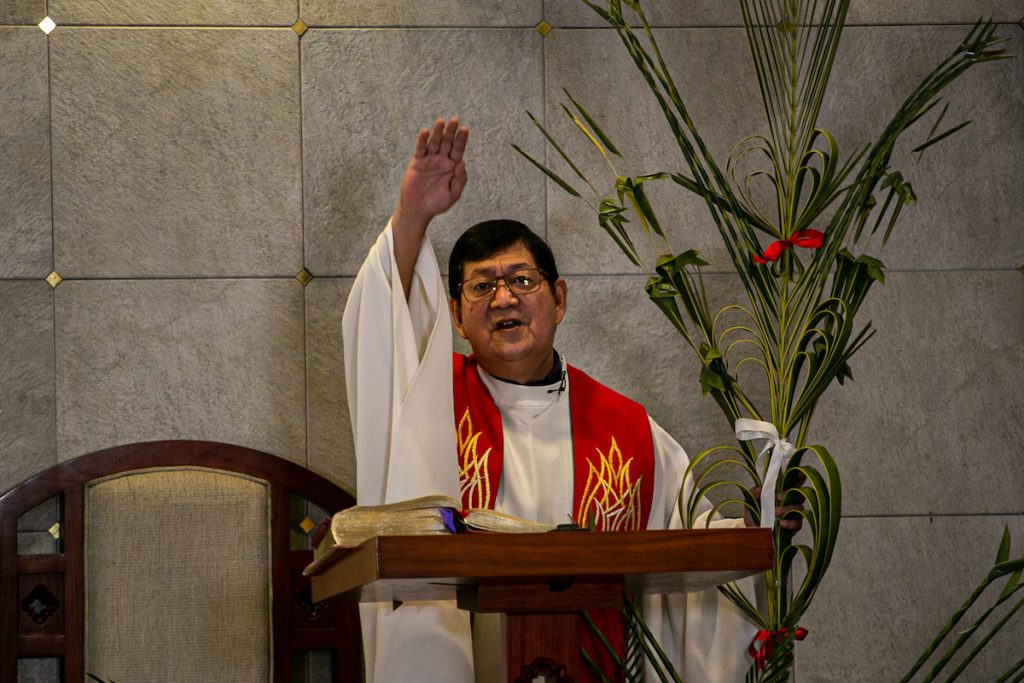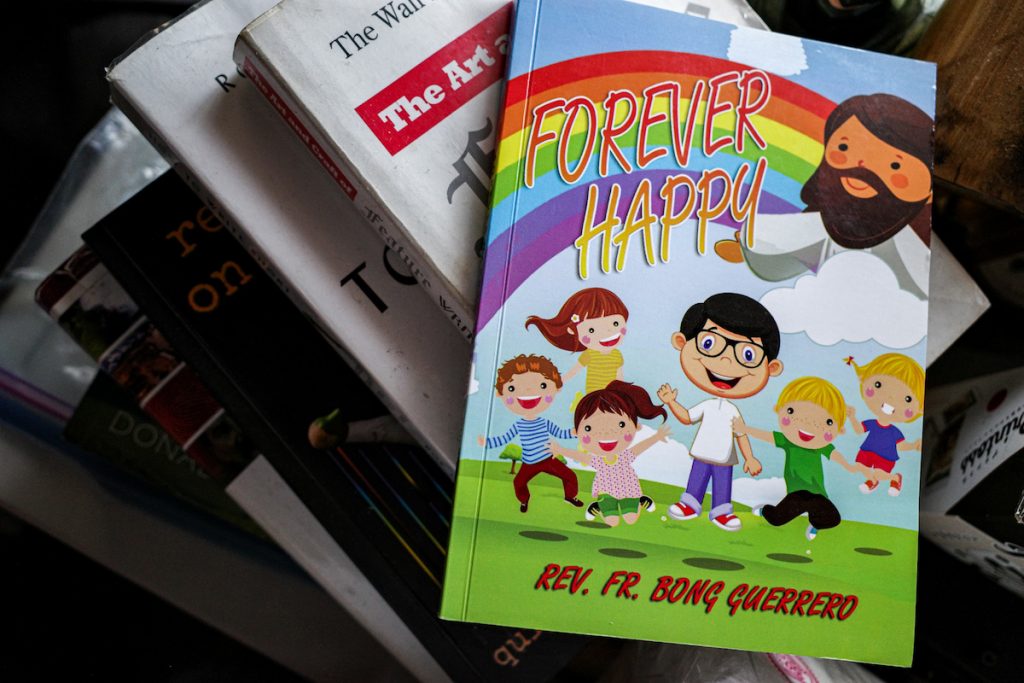At 62 years of age, Father Alfredo Guerrero of the Cubao Diocese in Manila admitted that he is not that young and is among those who are at risk of infection of the new coronavirus.
To ensure that he will be healthy and safe from the virus, the priest said he takes all the necessary precautions and maintains the “right dose” of his own medicine against the crisis.
“I always laugh and make other people laugh,” said the priest, a believer in the maxim that “laughter is still the best medicine.”
On Palm Sunday, Father Alfredo used humor to remind the faithful of the meaning of the blessing of the palms.
“We put them on our doors or altars to signify that we welcome Jesus in our homes,” he said.
“It is not an amulet to protect you from evil, especially if evil sleeps beside you, eats with you, and pays the rent,” the priest said in jest.
“It cannot protect you if the evil is your spouse,” he said.
No one laughed, except for the few church workers inside the chapel who were live streaming the celebration online.
The chapel was empty because of the “enhanced community quarantine” across the country. Public mass gatherings have been prohibited for a month now.
“I am not used to cracking jokes that no one laughs,” said the priest.
“Maybe people are laughing while they were watching the Mass on the internet, but it is different when you see them laugh in person,” he said.


Father Alfredo, or Bong to his friends, celebrated his 34th anniversary as a priest on Holy Saturday.
He said that in his more than three decades of being a priest, this year was “the saddest Holy Week” he ever had.
“We witness sorrow and suffering,” he said. “It is not only the sick who are suffering. Even those who are staying at home are suffering from boredom and anxiety.”
The priest said that despite the gravity of the situation, “we must laugh once in a while and offer our anxieties to God.”
Laugh and reflect
The priest said he could not help but crack jokes no matter how serious a conversation is. He said people would even laugh even during funeral Masses.
“I think it is a talent that God gave me,” he said. “I realized it when I was a teenager because every time I speak, my friends would lose their minds,” said Father Alfredo.
In 2014, the priest started writing his jokes and was able to publish six books and a “spiritual reflection and realization” behind the jokes.
His most recent book titled “Forever Happy” is a collection of jokes that he used in his homilies. After every funny story is a reflection on the lesson of the story.
“It is not enough to crack jokes and make people laugh,” he said. “We have to reflect and learn from the funny story, which always depicts our own experience as human beings,” said the priest.
“We laugh at stories or situations because we can relate to them, but it does not mean that we don’t take things seriously,” he added.


Father Alfredo is head of the ministry for ‘trans-parochial communities’ in the Diocese of Cubao that celebrates Masses in malls and business establishments.
He was a student of chemical engineering at the University of the Philippines in 1980 when he realized that he was a good public speaker.
“Because of my God-given talent, I knew I could be a good lawyer. That’s why I shifted to philosophy. After a few more years, I became a priest,” he said.
Bishop Honesto Ongtioco of Cubao told LiCAS.news that every priest in his diocese has a different personality.
“We must use whatever talent that we received from God to help ease the burden of suffering,” said the bishop. “Father [Alfredo]’s humor is personal, and we respect his way,” he said.
The bishop said what is important is the message regardless of how it is delivered.
Bishop Ongtioco always reminds his priests “to be yourself in expressing the message to the people.”
He said humor “adds spice to the conversation but we can’t expect it from everyone.”
Coping mechanism
Most Filipinos use humor as a coping mechanism amid difficulties.
Sociologist Septrin Calamba said this Filipino trait is embedded in culture. “We can see the light and good things in the dark. Humor is part of Filipino resiliency,” he said.
“The Filipinos’ ability to laugh easily and frequently is a huge source of surmounting problems and as support to both physical and emotional health,” said Calamba.
He said, however, that humor is not enough to battle the present health crisis.
“A lot of people cannot laugh today,” he said. “How can you laugh if your family is starving or if you are confined in a very small and hot room because of the quarantine?”
He said laughter can be a “support system to a comprehensive and inclusive plan” to ease the burden of the people.
The sociologist said humor as a coping mechanism “helps to create a positive atmosphere, but it will eventually vanish if the agony is prolonged.”


